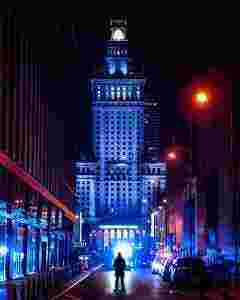Truman Capote’s Literary Betrayal: The Aftermath of “La Côte Basque 1965”
Introduction: A Scandalous Revelation
In 1975, literary circles were convulsed by an exposé that would forever stain the reputation of Truman Capote, a writer of immense acclaim. “La Côte Basque 1965,” an excerpt from Capote’s forthcoming novel Answered Prayers, divulged the intimate secrets and scandalous gossip shared with him by his elite social circle, the Swans. The article’s shocking revelations, ranging from substance abuse and sexual assault to murder cover-ups and bestiality, reverberated through high society, irrevocably altering Capote’s life.
The Fallout: Isolation and Loneliness
The repercussions of “La Côte Basque 1965” were swift and devastating for Capote. His closest confidants, the individuals whose trust he had betrayed, abandoned him. The New York social circles he had so ardently sought entry into and eventually infiltrated through his literary prowess, now shunned him. Capote found himself isolated and desolate, bereft of companionship and solace. The phone lines fell silent, leaving him to retreat into a solitary existence fueled by alcohol.
The Capote Tapes: Uncovering the Flawed Figure
Ebs Burnough, director of the acclaimed 2021 documentary The Capote Tapes, offers a unique perspective on Capote’s flawed character. The documentary unveils hours of audio recordings of Capote himself, providing an intimate glimpse into the man behind the scandal. Burnough emphasizes the profound nature of Capote’s betrayal, underscoring that these friendships had been cultivated over decades and held the significance of familial bonds. The abrupt loss of these relationships left Capote utterly adrift and alone.
La Côte Basque: A Place of Gossip and Culinary Delights
La Côte Basque, the setting of Capote’s infamous article, was a renowned fine-dining establishment celebrated for its exquisite French cuisine and its reputation as a hub of juicy gossip. Situated just off Fifth Avenue and a stone’s throw from The Plaza, the restaurant attracted a clientele of high-society figures who indulged in both culinary delights and the exchange of salacious stories. Capote’s decision to expose the secrets shared in this exclusive setting ignited a firestorm of controversy.
Ostracism and the Consequences of Betrayal
Capote’s ostracism from society may appear as a natural consequence of his betrayal, but it was the sheer magnitude of the outrage that truly astounded him. Society’s reaction was swift and unforgiving, leaving Capote reeling from the consequences of his actions. He had violated the sacred trust of friendship and loyalty, and the repercussions were severe. His literary reputation lay in tatters, and he was condemned as a pariah.
Ryan Murphy’s Feud: Bringing Capote’s Story to Life
Ryan Murphy’s highly anticipated series Feud, inspired by Laurence Leamer’s bestselling book Capote’s Women, delves into the real-life fallout from the publication of “La Côte Basque 1965.” Featuring an ensemble cast, the series promises to bring Capote and his muses back to life, shedding light on the complex relationships and betrayals that unfolded.
Conclusion: A Legacy Forever Tarnished
The publication of “La Côte Basque 1965” marked the downfall of Truman Capote’s career and left an indelible stain on his legacy. His actions shattered the trust of his closest friends, leaving him isolated and alone. Society’s ostracism and the depth of the outrage he faced revealed the severe repercussions of his betrayal. Capote’s literary scandal remains a cautionary tale about the fragility of friendships and the high price of betrayal.





